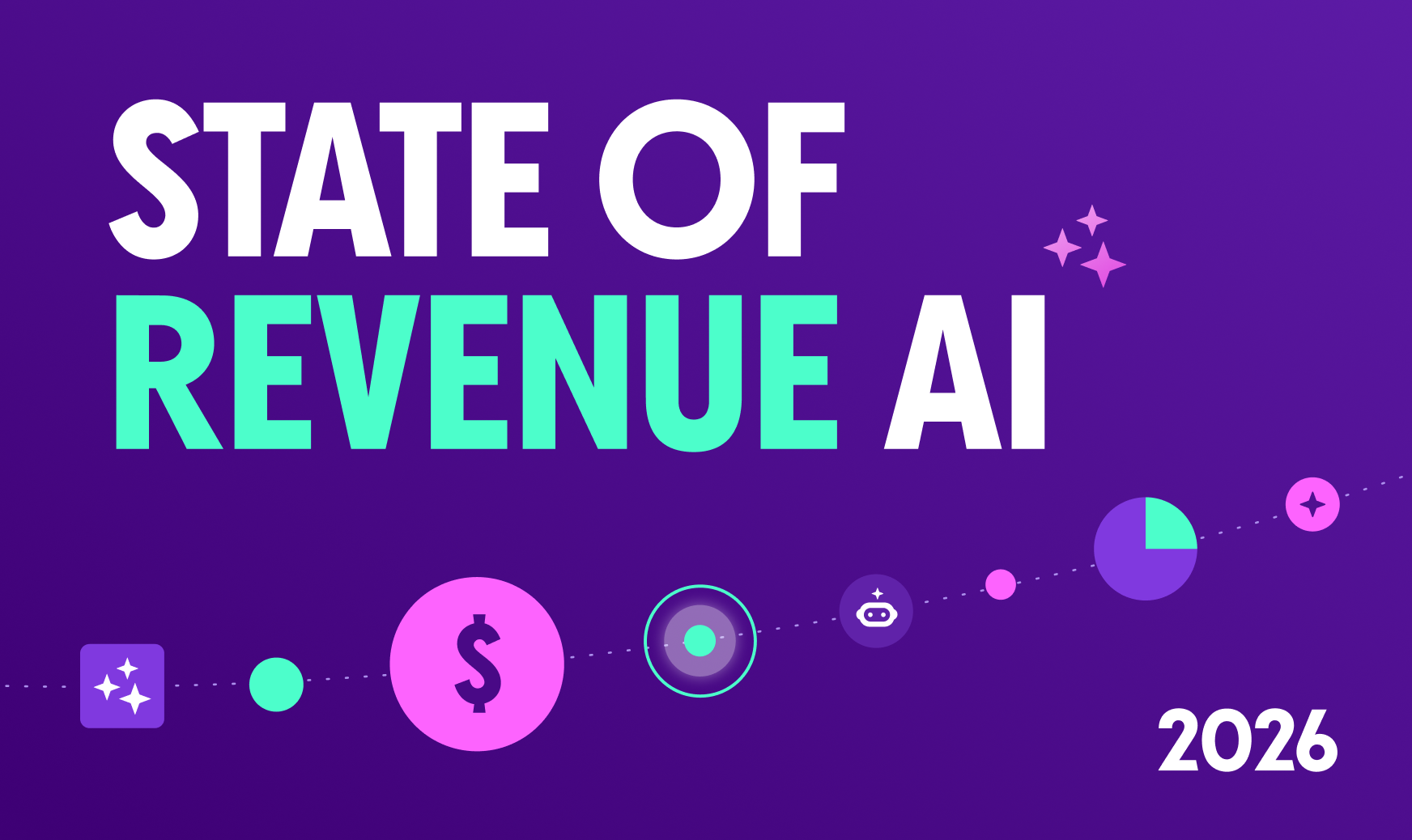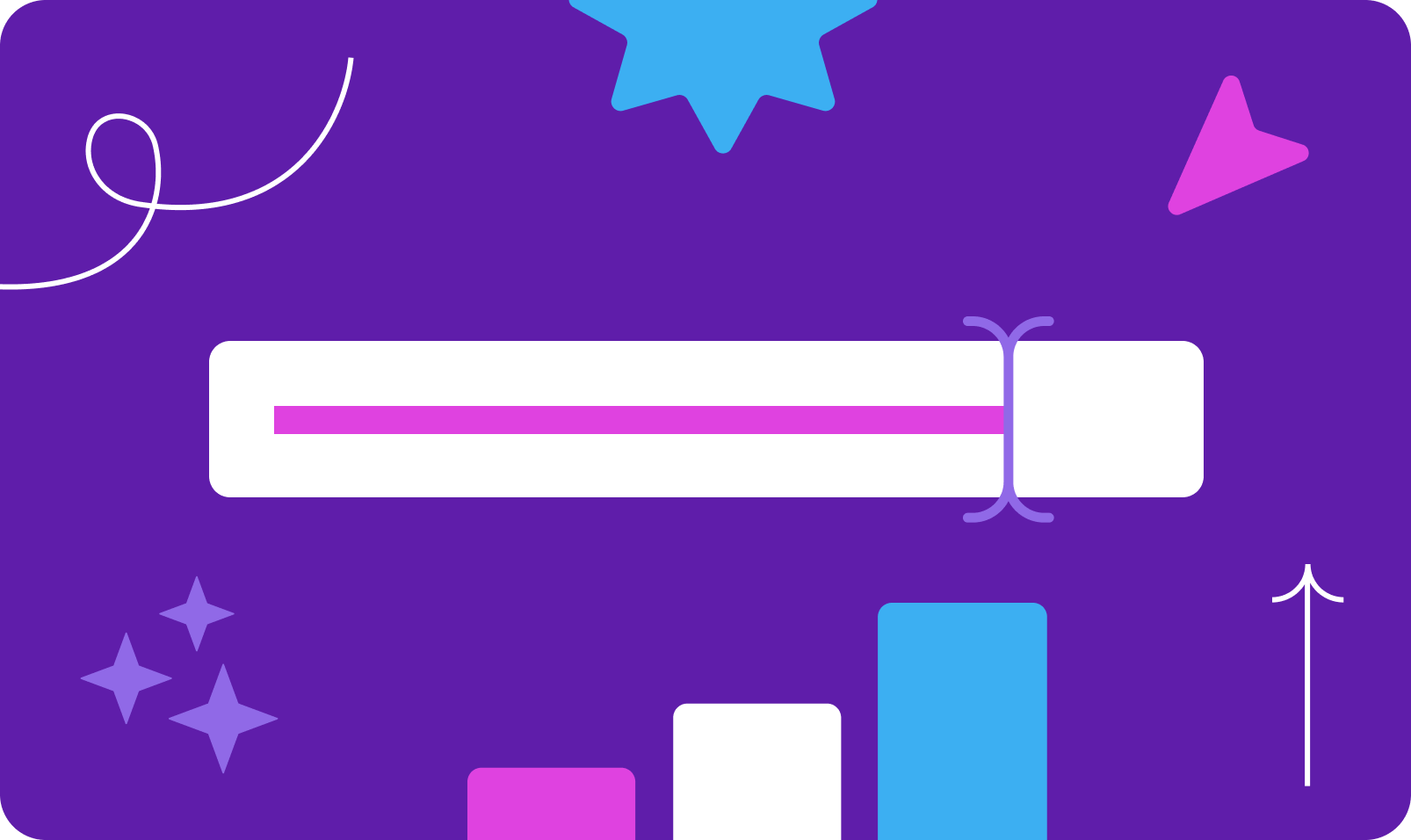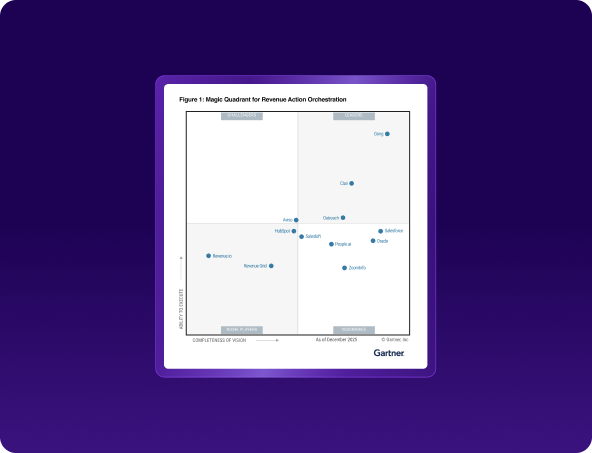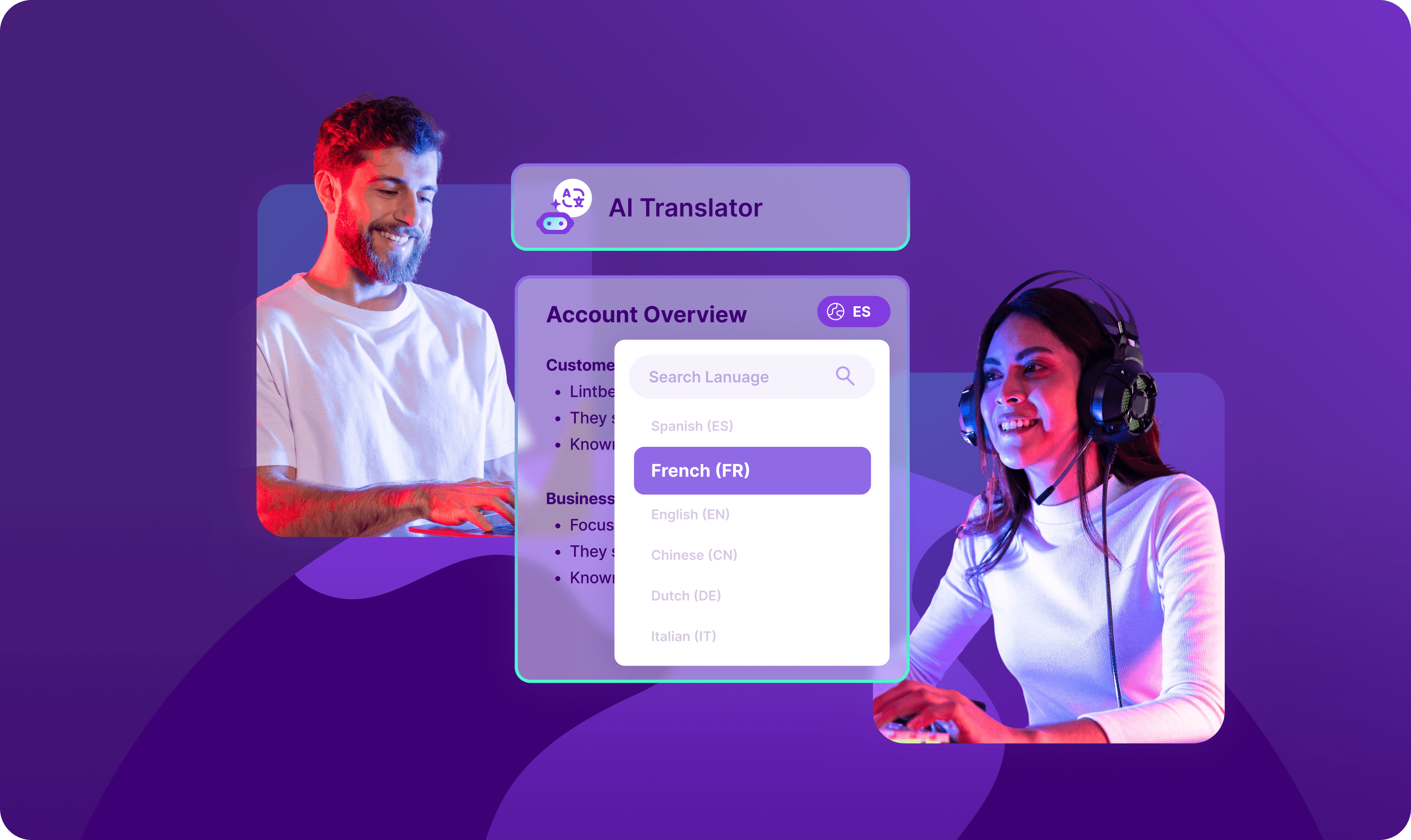Sales engagement
Effective strategies for successful sales discovery calls

Chris Orlob
Content Author
Published on: June 18, 2017

In the Gong Research Labs series, we publish data from analyzing sales calls with natural language processing and AI. Subscribe here for new data every week.
. . .
A new batch of sales conversation data confirms what some of us know at a gut-level: A key difference between the sales rep who goes to President’s Club and the rep who gets a pink slip lies in how they ask questions.
In the analysis of over 519,000 B2B sales call recordings, there was a crisp connection between the sheer number of questions asked on a discovery call and success:
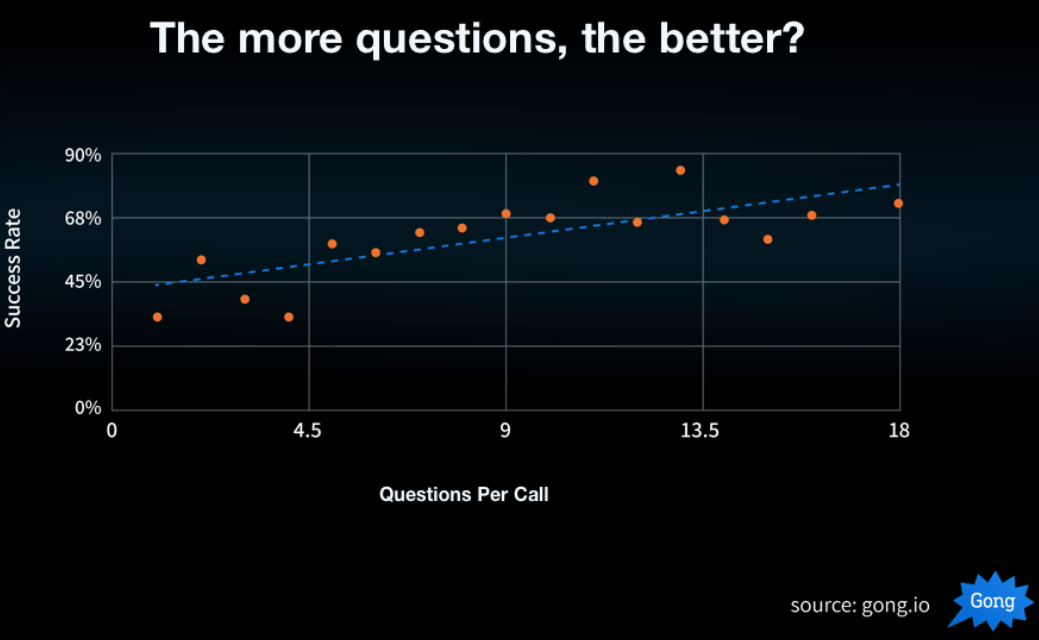
But take note: there’s a diminishing return in terms of the total number of questions you ask. You have the greatest shot at nailing your discovery call when you ask between 11-14 (targeted) questions. When you start asking more than that, your success rate drops to “average.”
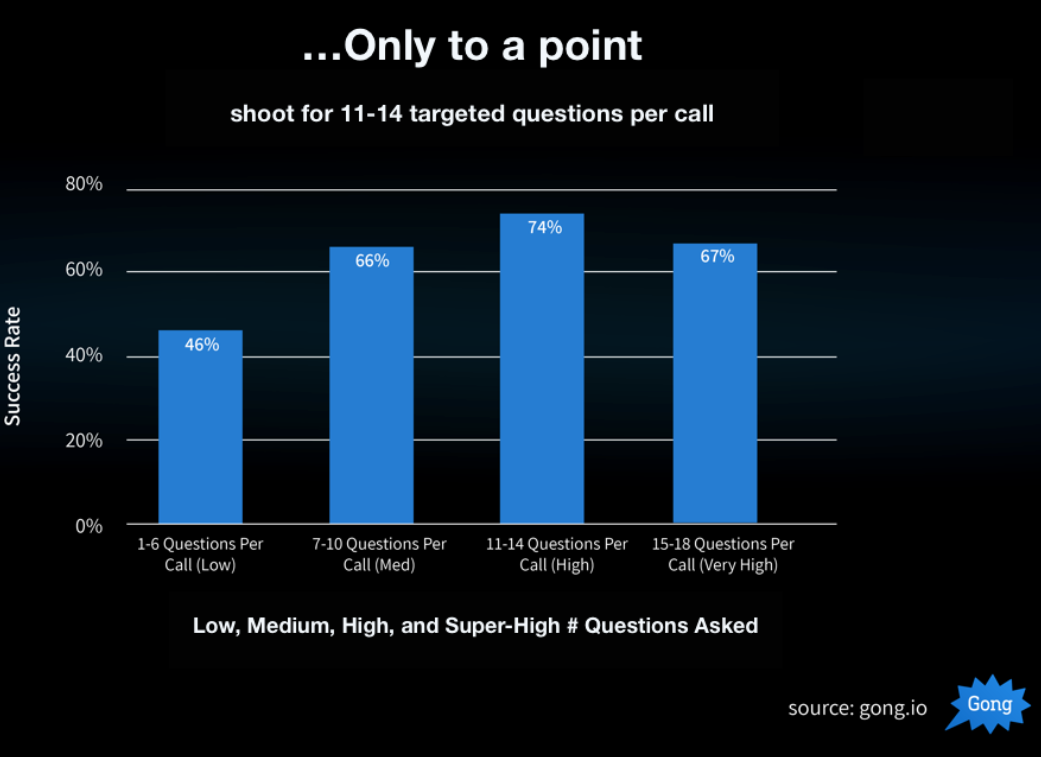
Before you fire up your next GoToMeeting and pepper your prospect with a barrage of sales discovery questions, thinking it’ll magically get them to put ink to the contract, let’s remember these two facts:
1. Correlation and causation aren’t the same things
2. The nature of the questions you ask matters, as illustrated by this data:
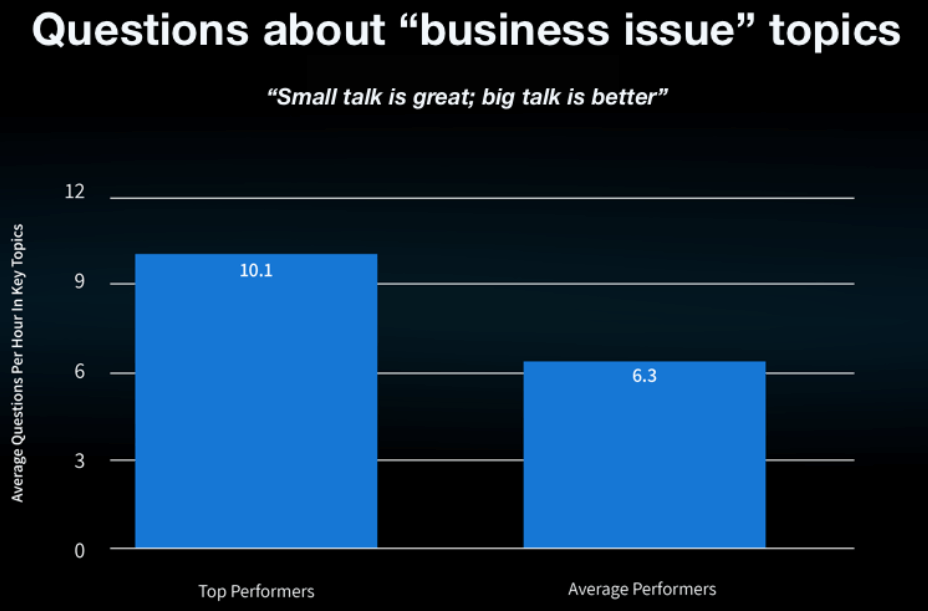
This one needs a short explanation: The machine learning algorithms that analyzed the 519,000+ sales calls are able to recognize specific “topics” that are discussed during a sales conversation.
Questions that were asked specifically about the customer’s business issues, challenges, goals, and areas of relevant concern had a stark relationship to bringing the deal across the finish line.
Top salespeople just asked a heck of a lot more targeted, relevant questions than their struggling peers.
In other words, for an effective discovery sales call, don’t just ask more questions; ask more targeted questions (easier said than done).
Finally, the “Eagles” of the sales floor tend to have more balanced, natural conversations. They spread their questions evenly throughout the discovery call:
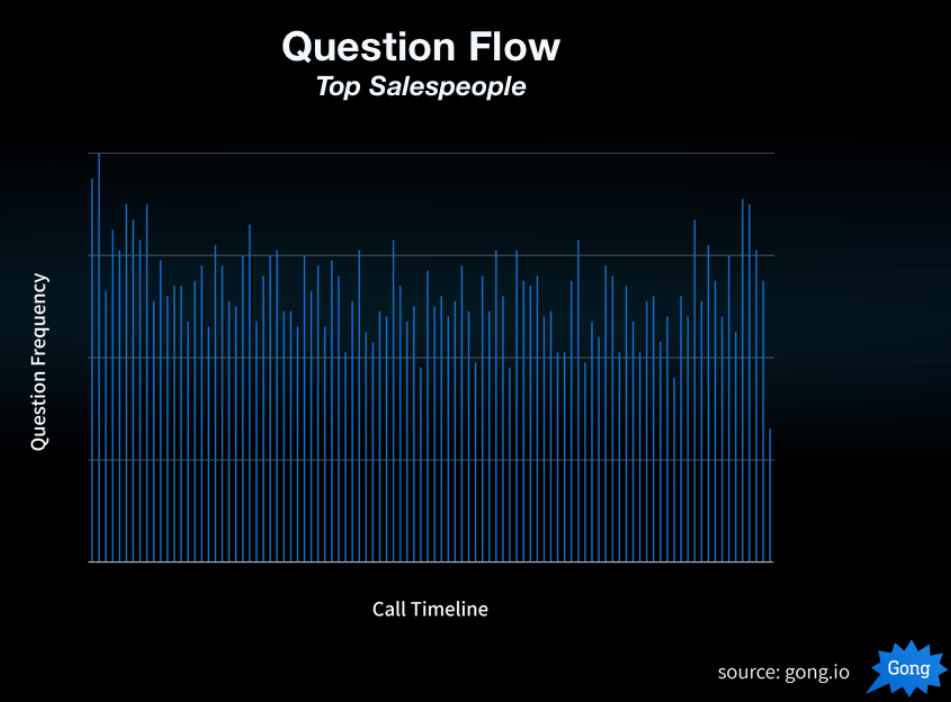
Contrast with average salespeople, who tend to “front-load” their questions at the beginning of the call as if they are working their way through a checklist:
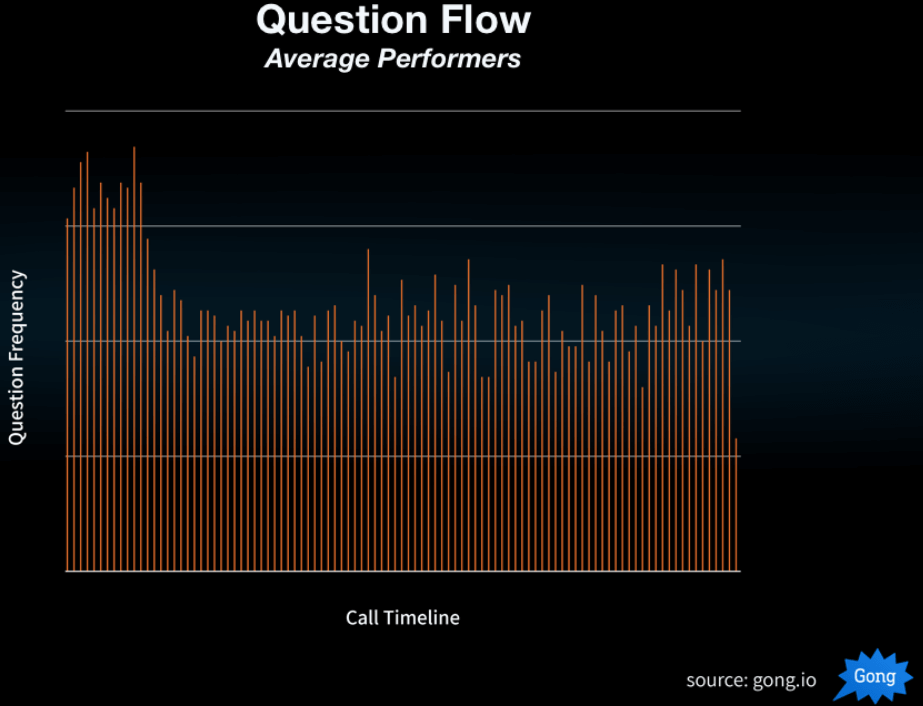
While it’s common knowledge that B2B salespeople should spend less time “pitching,” it should also be made clear that “interrogating” is equally frustrating for the potential customer.
Make it a two-way dialogue, not an interrogation.
“Ticking the boxes” next to your list of questions should be as frowned upon as “feature dumping” during demos.
The Anatomy of a Successful Sales Discovery Call
Effective discovery calls go beyond just asking questions.
Stay tuned next week for when we release the 7 Elements of a Successful Discovery Call.
This piece will break down all of the components we analyzed that make up winning discovery calls – beyond the use of questions.
If you’re going to Sales Machine in NYC on June 14, our CEO will be presenting this at 11:20 am.
Until then, feel free to tell me your thoughts in the comments below. Please “like” and “” on LinkedIn to help more sales professionals find this data.
Learn the exact discovery questions your top producing reps consistently ask by recording, transcribing, and analyzing their sales conversations with Gong.io – Request a demo today.
If you liked this article you may also be interested in How to start a sales call – Open Every Sales Call In a Way That Engages the Brain

Content Author
Chris Orlob is the Co-Founder and CEO of Pclub.io, a leading sales training platform designed to help sales professionals accelerate their revenue growth. He is best known for his pivotal role at Gong, where he helped scale the company from $200,000 to $200 million in ARR, contributing to a $7.2 billion valuation. During his tenure at Gong, Chris led the creation of Gong Labs and excelled in various go-to-market roles. Today, through Pclub.io, he leverages his deep expertise in sales and revenue operations to coach over 11,000 SaaS sellers.
Discover more from Gong
Check out the latest product information, executive insights, and selling tips and tricks, all on the Gong blog.
